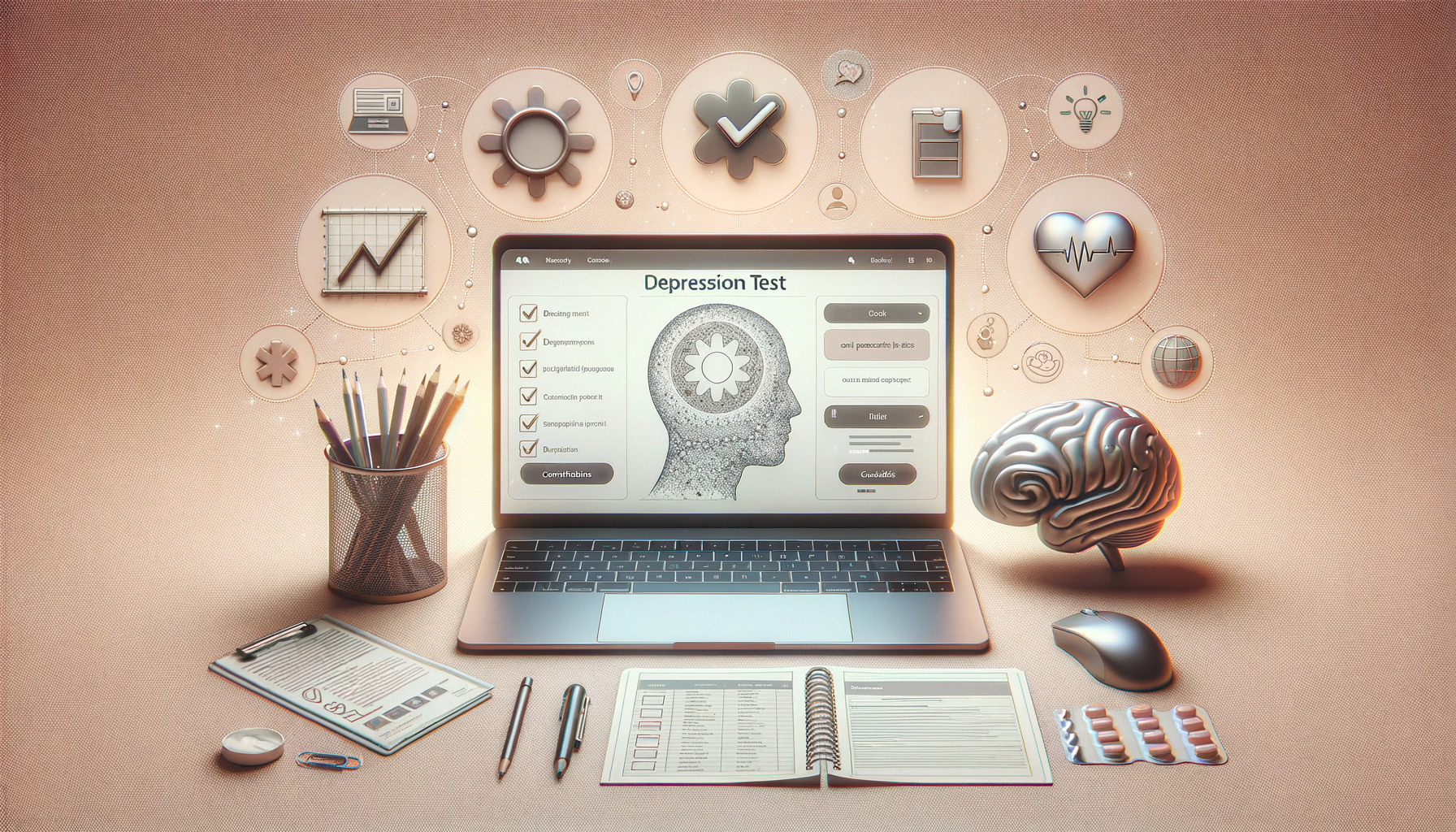Introduction to Depression Testing
Depression is a common mental health condition that affects millions of people worldwide. Understanding one’s mental state is crucial for seeking appropriate help and improving quality of life. Online depression tests have emerged as accessible tools that offer individuals a preliminary look into their emotional well-being. These tests are not diagnostic but can provide valuable insights into whether one might be experiencing symptoms of depression.
In this guide, we will explore the various aspects of depression tests, focusing on quick depression tests and their online counterparts. We aim to provide a comprehensive understanding of how these tools work, their benefits, limitations, and how they fit into the broader context of mental health care.
The Quick Depression Test: What It Is and How It Works
A quick depression test is a brief questionnaire designed to assess symptoms of depression. These tests typically consist of a series of questions that evaluate mood, behavior, and cognitive patterns. The questions are often based on established clinical criteria, such as those found in the Diagnostic and Statistical Manual of Mental Disorders (DSM).
Quick depression tests are designed to be easily accessible and can be completed in a short amount of time, often within minutes. They provide an initial indication of whether an individual is experiencing symptoms that may warrant further evaluation by a mental health professional. It’s important to note that while these tests can be informative, they are not substitutes for professional diagnosis and treatment.
Some common symptoms assessed in quick depression tests include:
- Persistent feelings of sadness or emptiness
- Loss of interest in activities once enjoyed
- Changes in appetite or weight
- Sleep disturbances
- Difficulty concentrating
- Feelings of worthlessness or excessive guilt
Exploring Online Depression Tests
Online depression tests have gained popularity due to their accessibility and convenience. These digital tools allow individuals to assess their mental health from the comfort of their own homes. Online tests often mirror the structure of quick depression tests but are delivered through web platforms or mobile applications.
One of the key advantages of online depression tests is their ability to reach a wide audience. They can be particularly beneficial for individuals who may be hesitant to seek in-person help due to stigma or logistical barriers. Moreover, online tests often provide immediate feedback, helping users understand their results and suggesting potential next steps.
However, it’s crucial to approach online depression tests with caution. The quality and reliability of these tests can vary significantly. Users should look for tests that are based on reputable sources and developed by mental health professionals. Additionally, while online tests can be a useful starting point, they should not replace a comprehensive evaluation by a healthcare provider.
Understanding the Limitations of Depression Tests
While depression tests, both quick and online, offer valuable insights, they come with limitations. These tests are primarily screening tools and are not designed to provide a definitive diagnosis. They rely on self-reported data, which can be influenced by an individual’s current mood, understanding of the questions, and willingness to answer honestly.
Moreover, depression tests do not capture the full complexity of an individual’s mental health. Depression is a multifaceted condition that can be influenced by a variety of factors, including genetics, environment, and life experiences. A comprehensive assessment by a mental health professional is essential for an accurate diagnosis and effective treatment plan.
It’s also important to consider that depression tests may not account for cultural differences in the expression of mental health symptoms. What is considered a symptom in one culture may not be recognized as such in another. Therefore, cultural sensitivity and awareness are crucial when interpreting test results.
Conclusion: Taking the Next Steps in Mental Health Care
Understanding your mental state through tools like quick and online depression tests can be an empowering first step towards better mental health. These tests provide a preliminary assessment that can guide individuals in seeking further evaluation and support. However, it is important to remember that they are not a substitute for professional care.
If you or someone you know is experiencing symptoms of depression, consider reaching out to a mental health professional for a comprehensive evaluation. Early intervention can significantly improve outcomes and enhance quality of life. Additionally, exploring resources such as support groups, therapy, and lifestyle changes can be beneficial in managing depression.
In summary, while online depression tests can offer initial insights, they should be used as part of a broader approach to mental health care that includes professional guidance and support.




Leave a Reply